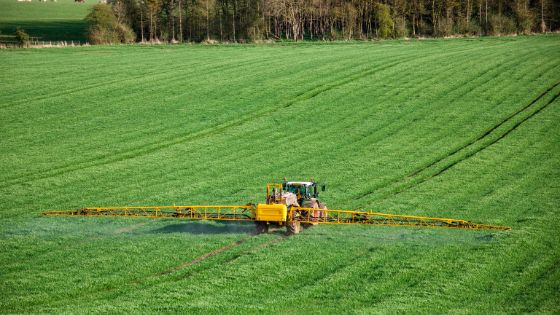Adjuvant sprays play a major role in controlling variables and enhancing the efficacy of pesticides, Fewer restrictions and unawareness about the use of adjuvant sprays are some of the constraining factors for the growth of the agricultural adjuvants industry.
Increased Demand For Pesticides Is One Of The Main Drivers For the Agricultural Adjuvants Industry
Adjuvants are chemicals added to a pesticide by users to improve the pesticide’s efficiency. The rising demand for crop protection chemicals is the prime factor which is contributing to the growth of the global industry for agricultural spray adjuvants. Increasing awareness about the benefits of using pesticides, keeping in mind the environmental aspects has summoned considerable attention in recent years will aid the expansion of the industry.


The use of pesticides has led to the contamination of water bodies causing severe environmental problems. Adjuvant sprayed at the time of use can unknowingly drift leaving water contaminated, this can happen due to weather conditions, and the physical and chemical properties of the pesticide. Environmental concerns associated with the use of adjuvants may hamper the industry’s growth trajectory to an extent.
Contamination In Water Bodies By Pesticides is Leading to Strict Regulatory Actions
Out of all groundwater stations in Europe, 7% were researched to have excessive levels of pesticides by PAN Europe. PAN Europe works to solve the problem of contamination by pesticides in European freshwater, particularly emphasizing the effects of endocrine-disrupting pesticides on aquatic ecosystems. Agricultural adjuvants business is primarily focused on self-regulation, which is interpreted as “trade secrets.” Although the variety of adjuvant products is generally the same, they could vary by slight differences in components, a combination of products having different functionalities. The U.S. Environmental Protection Agency (EPA) regulates adjuvant formulations, but it does not strictly regulate the manufacture and use of adjuvant products.
Adjuvants are combined and blended with a pesticide spray mixture or the pesticide product to improve the quality and the physical properties of the spray mixture. A spray of crop protection chemicals is majorly affected by various physical variables such as pesticide stability, solubility, compatibility, foaming, droplet size, suspension, surface tension, coverage, volatilization, penetration, and others.
Adjuvants play a major role in regulating these variables to improve overall pesticide effectiveness. Some of the more commonly used adjuvants include drift retardants, wetter-spreaders, stickers, buffers, and foam retardants. Research studies showed that agricultural adjuvants costs aroundUS$ 0.75-1.0 per acre along with herbicides which support and improve the absorption of spray by 50-85%. This factor is predicted to attract more buyers and aid in the expansion of the agricultural spray adjuvants industry.
North America and Europe To Have The Biggest Industry For Agricultural Spray Adjuvants
North America and Europe currently hold dominance in the global agricultural spray adjuvants industry. Strict regulations taken for the use of crop protection chemicals to protect the environment from hazardous effects are driving the industry for agricultural adjuvants in North America and Europe.
Some of the major companies that are present in the global agricultural adjuvants industry are BASF, Clariant, AkzoNobel, Huntsman Corporation, Helena Agri-Enterprises, Stepan Company, DowDuPont, Wilbur-Ellis, Drexel Chemical, and others.






















